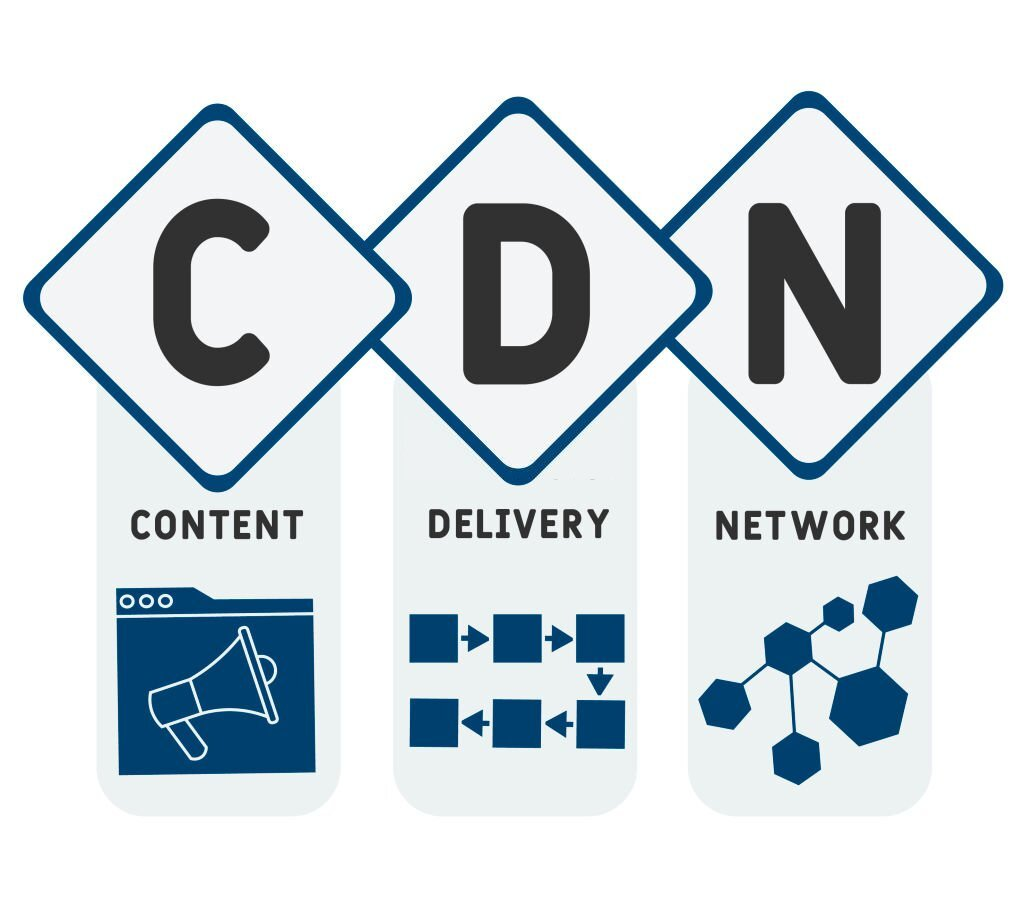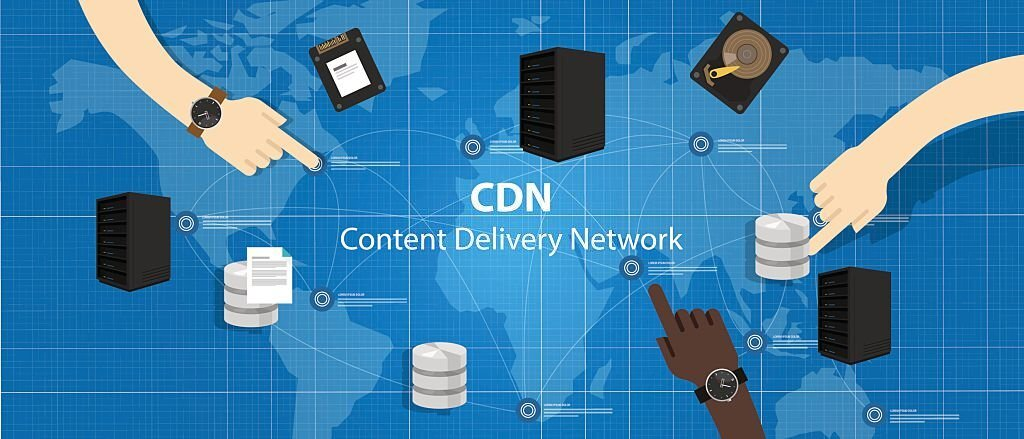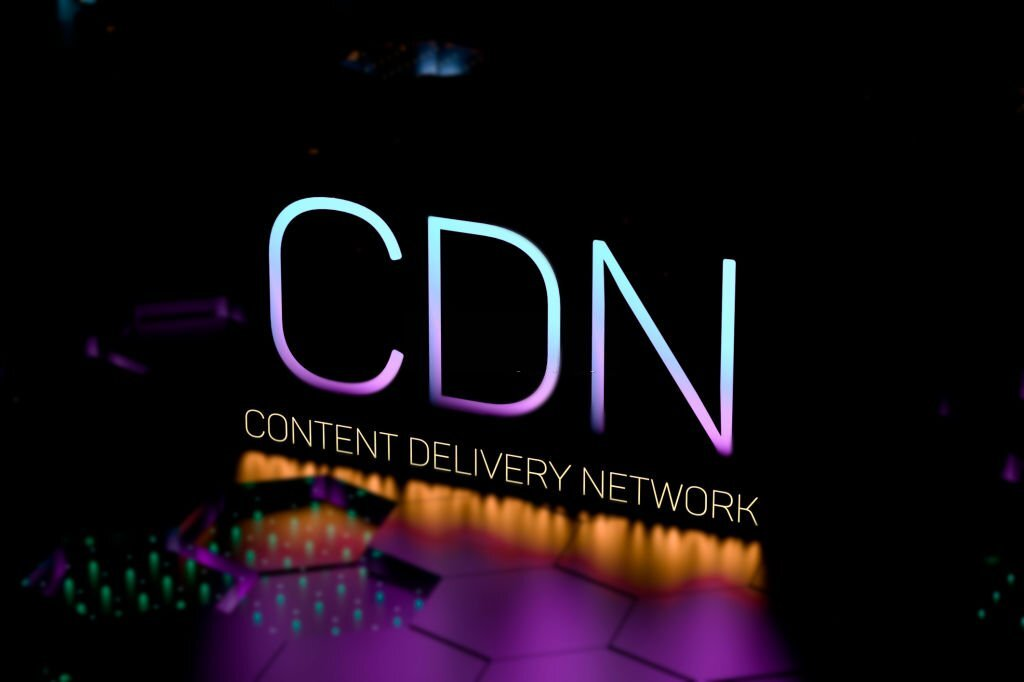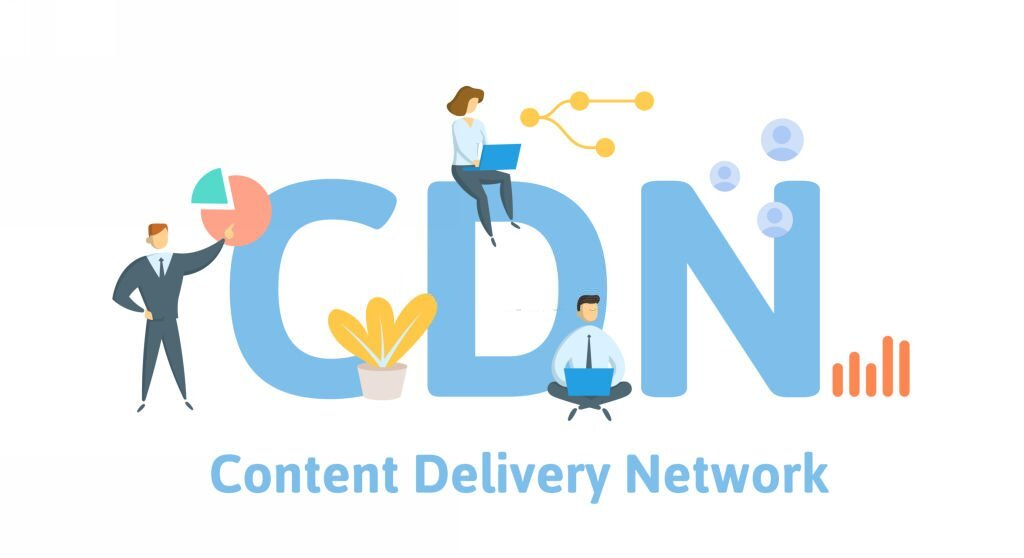
A CDN, also called Content Delivery Network, speeds up websites for users globally by having servers worldwide cache content for faster access. It enhances the browsing experience by efficiently loading HTML pages, JavaScript files, images, and videos. It also reduces the load on the main server, making websites more reliable.
Check out our Top 10 recommended CDN services for the best options to enhance your website’s performance.
Key Highlights
- A CDN is a system that improves website speed and reliability by distributing content across multiple servers globally
- Using a CDN can improve website speed, scalability, and security, but it may also increase costs and require additional configuration
- Knowing what a CDN is can help improve your website’s speed, scalability, security, and overall user experience
What Is a CDN?
A CDN is a system that helps make websites load faster and more reliably for users across the globe. It does this by storing and distributing copies of a website’s content on multiple servers located in different regions.
Visiting a website with a CDN means content comes from the nearest server to the user. Shorter data travel distances lead to quicker loading times, improved user experience, and less strain on the main server.
How Does a CDN Work?
A CDN works by storing copies of a website’s content on multiple servers around the world. When you visit the site, the content comes from the closest server to you, making the site load faster.
To understand how a CDN works, imagine a restaurant with multiple branches. Instead of going far to the main branch, you visit the closest one, saving time. In the same way, a CDN delivers content from the nearest server, ensuring websites load fast and efficiently for users.
The History of CDN
In the late 1990s, the internet grew faster than ever, and websites struggled to keep up with the increasing user demands. To tackle this issue, innovators led by companies like Akamai Technologies stepped up and created the first CDN in 1998, bringing a new era of faster and more reliable web experiences.
Over time, CDN technology advanced, and more providers emerged. CDNs stand today as essential guardians of the internet, ensuring that content reaches users across the globe swiftly and efficiently, making the digital world a better place for all.

What Are the Benefits of Using a CDN?
A CDN offers advantages that can significantly improve your website’s performance, scalability, and security. Let’s dive into some key benefits that make it an essential tool for modern websites:
Faster Website Loading Times
Load speed is crucial for your website’s success. Longer loading times result in higher bounce rates and less patience from users. Even a mere one-second delay can cause an 11% drop in page views, a 16% decline in customer satisfaction, and a 7% reduction in conversions.
A CDN makes websites load faster for users worldwide by delivering content from nearby servers. A faster website means a better user experience, encouraging visitors to stay and engage with your site.
Improved User Experience
A faster-loading website improves the overall user experience, which is essential for retaining visitors and building a loyal customer base. A CDN ensures your website content loads quickly, which means users are more likely to stay on your site, explore your content, and complete conversions.
Scalability and Traffic Management
CDNs help manage website traffic by handling daily visitors and unexpected traffic surges. They share the load among multiple servers during busy times, preventing crashes and easing pressure on the main server. This leads to efficient handling of increased traffic.
Enhanced Security
In 2020, Amazon Web Services faced a DDoS attack, causing Netflix, Twitter, and Reddit to crash. CDNs could have kept these sites secure and online, which would have made users happy.
CDNs provide additional layers of security to safeguard your site from various threats. Many CDN providers offer built-in protection against DDoS attacks to keep your site online. At the same time, SSL/TLS encryption secures data transferred between your website and your users, ensuring privacy and security.
Global Reach
With a CDN, your website can reach a global audience, regardless of their geographic location. CDNs have servers across the world, ensuring that your website loads quickly, no matter where your users are located.

Who Can Benefit from Using a CDN?
Using a CDN could be a game-changer if you want to improve your website’s performance, scalability, and security. It’s designed to improve website speed and provide visitors with a better user experience, regardless of location. Here are some examples of who can benefit from using a CDN:
- E-commerce websites with high-traffic volumes
- Websites with global audiences
- Websites that serve large media files
- Websites that experience sudden traffic spikes
- Websites that require improved security and protection against cyber threats
What Are the Different Types of CDNs?
CDNs are becoming increasingly crucial for website owners as they seek to improve their site’s performance and security. There are several types of CDNs available, each with its own unique features and advantages:
Traditional CDNs
Traditional CDNs use servers worldwide to provide content to users. When someone requests content from your site, the closest server sends it. These CDNs work well for websites with global visitors needing quick content delivery.
This type of CDN offers benefits like faster load times, global coverage, and enhanced reliability. However, it may have disadvantages, such as higher costs for small businesses and potential limitations in server locations, which could affect content delivery in some areas.
P2P CDNs
Peer-to-peer (P2P) CDNs distribute content through a network of peers or nodes. This allows users to download from others’ devices instead of a central server.
P2P CDNs are ideal for websites with large files, like video or audio streaming platforms, as they can lower bandwidth costs. However, they might face security risks or slower delivery if there aren’t enough users to share content.
Cloud CDNs
Cloud CDNs use the cloud to deliver content to users, making them suitable for websites needing flexibility and scalability. Site owners can adjust their bandwidth and storage needs as needed.
Cloud CDNs offer faster content delivery and global coverage. However, they can cost more than traditional CDNs, especially for small businesses or those with low traffic.
Hybrid CDNs
Hybrid CDNs merge the benefits of traditional and cloud CDNs to provide a more adaptable solution. This type of CDN uses both cloud and traditional servers to distribute content, offering both flexibility and quick delivery times.
This CDN is ideal for websites that need a balance between scalability and cost-effectiveness. However, remember it may require more technical expertise to set up and manage than other types of CDNs.

How to Get Started With a CDN
Starting with a CDN may seem daunting, but it doesn’t have to be. Follow these steps to begin:
Determine Your Website’s Needs
To choose the right CDN, start by identifying what your website requires. Answer these questions to help you determine the best CDN for your website:
- What are your website’s current performance issues?
- How can a CDN address these performance problems?
- What are your website’s security concerns?
- How can a CDN enhance your website’s security?
Choose a CDN Provider
Once you know what your website needs, it’s time to choose a CDN provider. There are many CDN providers available, so follow these tips to find the one that best fits your needs:
- Identify the features you need, such as DDoS protection, SSL/TLS encryption, and global reach
- Research and compare different CDN providers based on your needs
- Look for a provider that offers the features you need
- Consider the provider’s pricing plans and if they fit your budget
- Choose a provider that has positive reviews
Set Up Your CDN
Once you’ve chosen a CDN provider, it’s time to set up your CDN. The setup process will vary depending on the provider you choose, but it typically goes like this:
- Sign up for an account with your chosen CDN provider
- Configure your CDN settings based on your website’s needs
- Follow the provider’s instructions to integrate your website with the CDN
- Test your website to ensure that the CDN is working correctly
Monitor and Optimize Your CDN
Once your CDN is set up, it’s crucial to monitor its performance and optimize it accordingly. Here are some tips to help you:
- Monitor your website’s performance to ensure that the CDN is improving website loading times and reducing latency
- Check your CDN provider’s analytics dashboard to track your website’s performance and identify any areas for improvement
- Optimize your CDN by adjusting your settings or upgrading your plan to meet your website’s evolving needs
- Consider using tools like content optimization or compression to further improve your website’s performance
- Regularly test your website’s speed and performance to identify any issues or areas for improvement
- Contact your CDN provider’s support team if you encounter any problems or have questions about optimizing your CDN

How to Select the Right CDN for Your Needs
Choosing the right CDN can significantly impact your website’s performance, scalability, and security. Here are some factors to consider when selecting the right CDN for your needs.
Performance
When choosing a CDN provider to improve website performance, look for one that can deliver content quickly and reliably, with low latency and high uptime. Ensure the provider’s server locations match your website’s target audience to improve loading times. A provider with a global reach can ensure quick loading times for users worldwide.
Security
CDNs can also improve your website’s security by offering DDoS protection, SSL/TLS encryption, and other security features. Look for a provider that gives the level of security your website requires, and consider the provider’s track record for uptime and security.
Scalability
As your website grows and evolves, it’s essential to have a CDN that can keep up with your needs. Look for a provider that offers scalable plans and can handle sudden traffic spikes, ensuring your website remains online and responsive during peak times.
Cost
CDN costs can vary depending on the provider and the features you need. Consider your budget and look for a provider that offers a plan that fits your needs and budget. Keep in mind that investing in a CDN can provide long-term benefits and potentially save you money in the long run.
Support and Resources
When choosing a CDN provider, consider the support and resources they provide. Look for a provider that offers documentation, tutorials, and helpful customer service to get started with their service. This ensures you have the necessary resources to optimize your CDN and address any issues that may arise.
Conclusion
A CDN is essential for websites as it helps distribute content quickly to users worldwide. This guide explained what a CDN is, its history, its benefits, and who can benefit from it. We also discussed different types of CDNs and how to get started with a CDN.
To improve your website’s performance and provide a better user experience, make sure to choose the right CDN provider, monitor its performance, and optimize it as needed. With these tips, you can enhance your website’s performance and make it more accessible to visitors around the world.
Next Steps: What Now?
- See the top 10 CDN service providers
- Check the top website builder providers
- Discover the top web hosting providers
Further Reading (Useful Resources)
- How to Integrate a CDN Service with WP Web Hosting Using a Plugin
- How to Enable and Manage the Cloudflare Content Delivery Network (CDN)
- How to Configure Drupal 8 to Use the Cloudflare CDN in cPanel
- How To Set Up The Cloudflare CDN For WordPress On Your hosting Dashboard or Cloudflare Account
- Content Delivery Network (CDN) Market Research Report with Analysis 2023 To 2031







